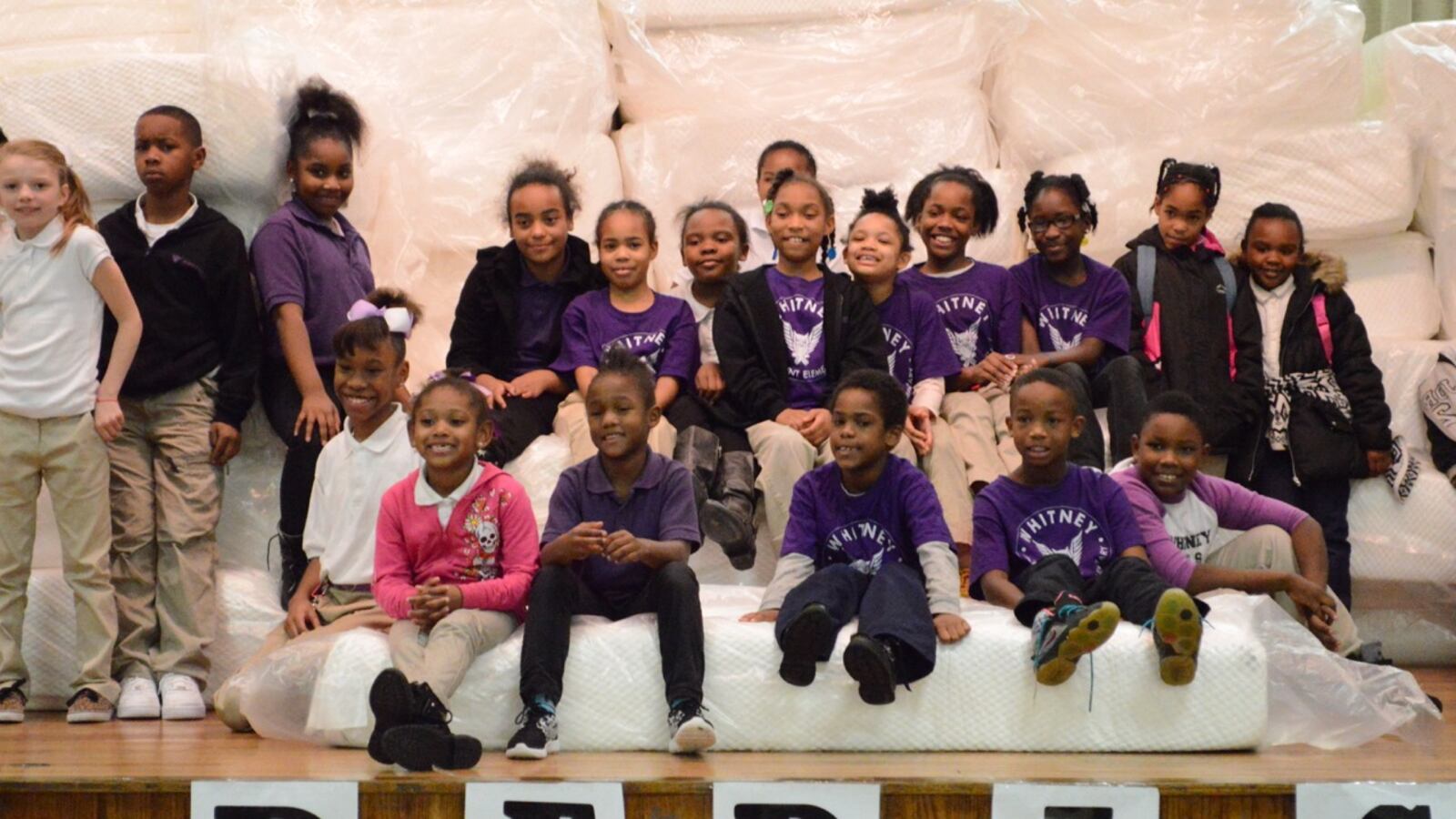Unique McGee, a fourth-grader at Whitney Achievement Elementary School in Memphis, has never had her own bed. Instead, she shares a bed with two siblings, which she says sometimes causes her to feel tired when she comes to school in the mornings.
“They bend their knees up in their sleep, and that takes up all the space, so it’s hard to sleep,” Unique explains.
But those conditions will soon change. On Friday, she and 85 other students at her north Memphis school received the gift of a new twin-size mattress from Tempur-Pedic, a Lexington, Ky.-based manufacturing company.
The gift arrived after the school’s after-school walking program caught the attention of Tempur-Pedic employees. Every school day, teachers walk children home from school to ensure their safety, as well as to bond with their students. About 200 students take part in the program, many of whom live in apartments about a quarter-mile away from the school in Memphis’ Frayser community. Other children live up to two miles away.
The program received national attention last fall when a Frayser resident snapped a photo of special education teacher Carl Schneider walking his students home and shared it online. The photo quickly went viral, and television talk show host Ellen DeGeneres, in conjunction with the company Shutterfly, donated more than $50,000 in cash to the school, as well as rain gear for every student walking home.
“It’s impossible to hear about the amazingly dedicated teachers at Whitney Elementary and not be moved. More than a few tears were shed in our office when we read their story,” said Tempur-Pedic spokesman Terry Brophey.
Company officials initially offered to give mattresses to the participating teachers to thank them for going the extra mile — literally. But the teachers quickly asked that the truckload of mattresses be given instead to students, most of whom come from low-income families.
“I have a nice queen-sized bed, and some of our students don’t even have mattresses,” said Schneider, who often sees his students fatigued in class and unable to focus. “The idea that they get to sleep on this luxurious mattress and get a good night’s sleep is amazing.”

According to the National Sleep Foundation, children ages 6 to 13 need nine to 11 hours of sleep a day. However, sleep problems and disorders are prevalent at this age. Poor or inadequate sleep can lead to mood swings, behavioral problems such as ADHD, and cognitive problems that impact on their ability to learn in school.
Tim Ware, executive director for the state-run Achievement Schools, welcomed the decision by his teachers to invest again in their students’ lives outside of the classroom. He was also not surprised.
“All of that research around the effects of good sleep on the brain — how you function in school emotionally and psychologically, your ability to handle complex tasks … — all of that led [them to say], ‘Hey, let’s actually put these beds to the students and their families,” Ware said.

